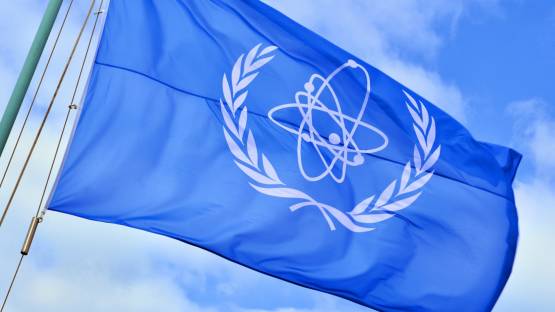Grossi (IAEA): "Unsustainable situation, an expert mission to Zaporizhzhya is needed".

Grossi (IAEA): "Unsustainable situation, an expert mission to Zaporizhzhya is needed".
The IAEA Director General Rafael Mariano Grossi, during a press conference, reiterated the need for an expert mission to the Ukrainian nuclear power plant in Zaporizhzhya. The site is still under the control of Russian forces.
The Zaporizhzhya plant, the largest in Europe, currently has multiple critical issues: Ukraine reports that the supply of material has been interrupted and the stocks of consumables and spare parts have been reduced, although those available at the moment would be sufficient to guarantee the safety of the plant.
Grossi also expressed deep concern about the "extremely stressful" working conditions in which Ukrainian management and staff run the plant.
As for the Chernobyl nuclear power plant, the IAEA has announced that it has contributed to the restoration of the monitoring data communication system in the Exclusion Zone, which had been interrupted since the first days of the conflict. The data are now also transmitted to the Agency, which makes them available through the IRMIS system (International Radiation Monitoring Information System), the web platform for the voluntary sharing of monitoring data with the IAEA and the Member States. From the analysis of the information received, it emerges that, within the Exclusion Zone, which extends for a radius of 30 km from the plant, the levels of radioactivity are in line with those measured before the conflict.
In addition to organizing support missions in Ukraine (three have been carried out so far), the IAEA is also coordinating international assistance to Ukraine through the RANET (Response and Assistance NETwork) system, with which Member States can register own support skills in various areas, such as dose assessment, decontamination, research, securing of sources, etc.
Eleven countries registered in RANET offered tools and equipment against a list of needs communicated by Ukraine, which required, among others, radioactivity measuring instruments, protective equipment, IT assistance, electrical power systems, diesel generators.
"The best action to ensure the safety and security of Ukraine's nuclear facilities and its people would be for this armed conflict to end now," Grossi said. "Even in this unprecedented and unstable situation, we have managed, together with Ukraine and with the generous support of many Member States, to develop and start delivering the comprehensive assistance program".
Regarding the situation of the nuclear plants, Ukraine reported that 8 reactors are currently in operation (2 in Zaporizhzhya, 3 in Rovno, 2 at the South Ukraine plant and one in Khmelnytskyy); the remaining 7 reactors are under maintenance or in reserve. All security systems are active on all Ukrainian plants, as well as the power supply.
